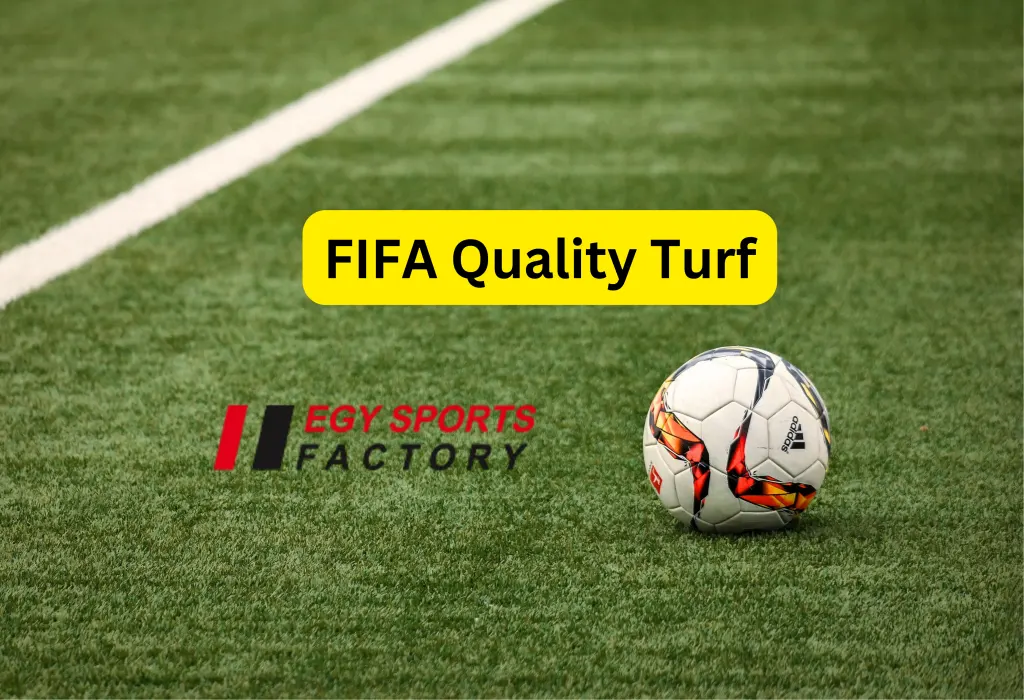In the world of professional sports, maintaining world-class playing surfaces is paramount to ensure fair competition and player safety. When it comes to the game of soccer, FIFA Quality Turf sets the standard for excellence in artificial turf systems.
Developed by the Fédération Internationale de Football Association, the international governing body of soccer, this certification represents the highest level of quality and performance in synthetic turf.
With meticulous standards and rigorous testing, FIFA quality turf guarantees that players can enjoy an exceptional playing experience, unmatched durability, and optimal ball behavior on these cutting-edge surfaces.
FIFA Quality Turf
FIFA quality turf is a term to describe high-quality artificial turf surfaces that meet the stringent standards set by FIFA.
These surfaces provide an alternative to natural grass and have gained immense popularity due to their significant advantages in terms of durability, performance, and maintenance.
One of the primary reasons FIFA Quality Turf has become a popular choice for many sporting facilities is its ability to withstand heavy use and unpredictable weather conditions. Unlike natural grass, these synthetic surfaces are suitable for withstanding heavy foot traffic without losing their pristine condition.
This durability factor allows football matches and training sessions without concerns about the surface deteriorating over time.
Does FIFA Allow Artificial Turf?
FIFA, as the guardian of the world’s most popular sport, is tasked with ensuring fair play, safety, and uniformity in soccer competitions globally. When it comes to playing surfaces, FIFA has set forth specific requirements to maintain a consistent and high-quality standard of play.
Traditionally, natural grass has been the preferred playing surface for professional soccer matches due to its natural properties. However, the rise of artificial turf has prompted FIFA to consider its inclusion.
One key aspect that FIFA considers when evaluating the use of artificial turf is player safety. The protection of players are of utmost importance. FIFA also mandates that playing surfaces meet specific standards to minimize the risk of injuries.
Artificial turf must offer the required level of player protective qualities, with adequate shock absorption and traction. Various tests and studies are undertaken to assess the compatibility of artificial turf in meeting these safety standards.
FIFA Quality Turf Cost
FIFA, the international governing body for football, has established certain standards for football surfaces, including turf. The FIFA quality turf is a prestigious certification that ensures high-quality playing conditions for football matches.
The process of achieving this certification involves rigorous testing and adherence to specific guidelines set by FIFA. While the benefits of FIFA quality turf are undeniable, it is essential to consider the cost implications associated with installing these top pitches.
The preparation of the playing surface will affect FIFA turf cost. FIFA demands that the ground must be level and properly drained to ensure optimal playing conditions. Irregularities in the surface can lead to uneven ball bounce and unpredictable player movements.
Achieving the required surface conditions often necessitates extensive groundwork, including leveling and installing a suitable drainage system. These additional preparatory steps can significantly add to the overall cost of installing FIFA Quality Turf.
Egy Sports Factory manufactures artificial turf
At Egy Sports Factory, we understand the importance of providing sports facilities with top-of-the-line artificial turf that meets the highest standards. With years of experience in the industry, we also have perfected our manufacturing processes to ensure the production of turf.
In addition to the quality of the materials used, our manufacturing process is highly advanced and technologically driven. Follow our website and Facebook page to see more products and offers.

